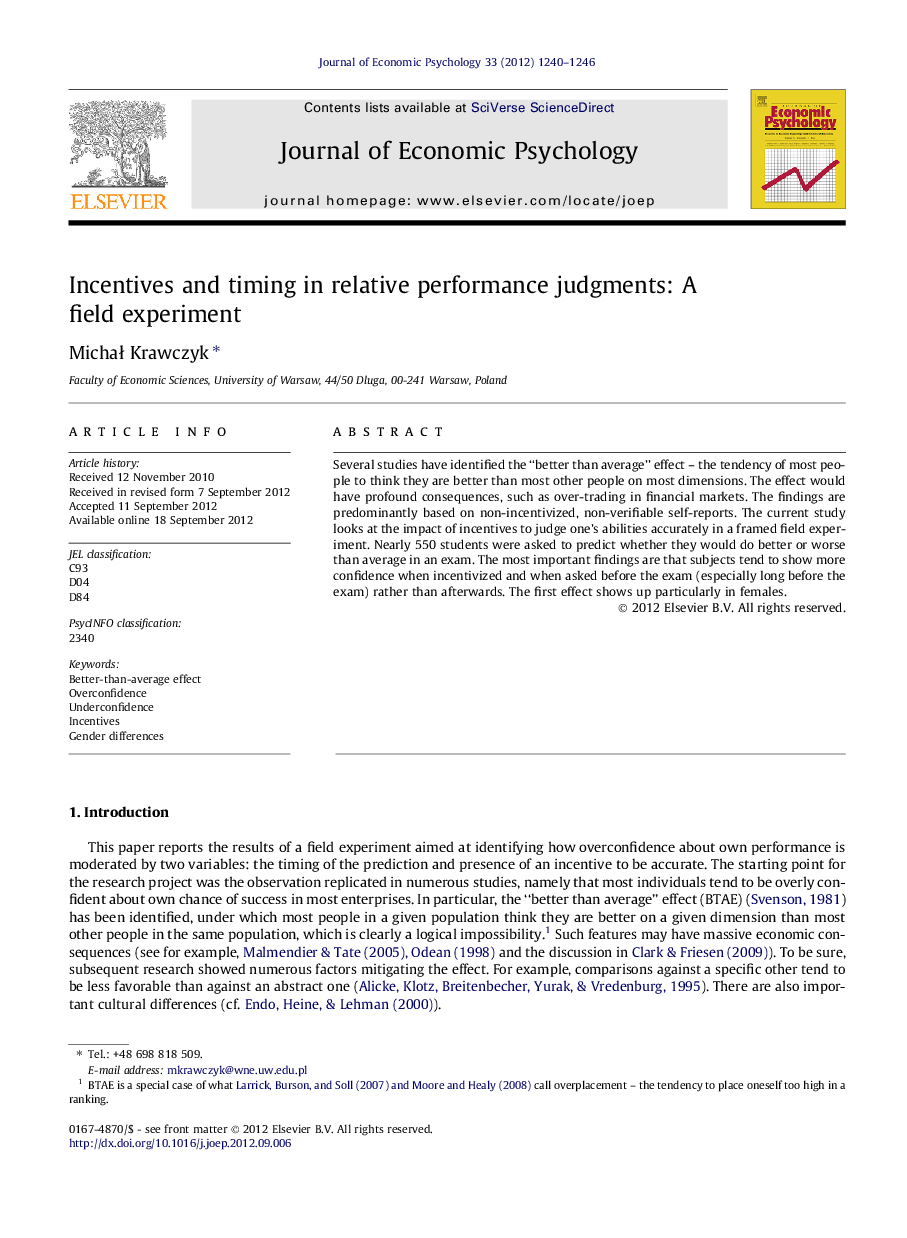| Article ID | Journal | Published Year | Pages | File Type |
|---|---|---|---|---|
| 884995 | Journal of Economic Psychology | 2012 | 7 Pages |
Several studies have identified the “better than average” effect – the tendency of most people to think they are better than most other people on most dimensions. The effect would have profound consequences, such as over-trading in financial markets. The findings are predominantly based on non-incentivized, non-verifiable self-reports. The current study looks at the impact of incentives to judge one’s abilities accurately in a framed field experiment. Nearly 550 students were asked to predict whether they would do better or worse than average in an exam. The most important findings are that subjects tend to show more confidence when incentivized and when asked before the exam (especially long before the exam) rather than afterwards. The first effect shows up particularly in females.
► In a framed field experiment incentivization of own relative performance prediction leads to more confidence (overplacement). ► This effect shows up particularly for females. ► Timing also plays a role, with subjects being more confident before the task.
